- Home
- Daphne Du Maurier
The Birds and Other Stories Page 15
The Birds and Other Stories Read online
Page 15
Together they looked at the fire. Willis had cut the logs small. The woman, thinking to please him, had piled several on top of one another, to make a good fire to last. There was no great blaze. The smoke that came from them was thin and poor. Greenish in color. Was it possible she did not notice that sickly rancid smell?
"The logs are wet," he said abruptly. "Willis should have known better. Look at them. Quite useless on my fire."
The woman's face took on a set, rather sulky expression. "I'm very sorry," she said. "I didn't notice anything wrong with them when I came to light the fire. They seemed to start well. I've always understood applewood was very good for burning, and Willis said the same. He told me to be sure and see that you had these on the fire this evening, he had made a special job of cutting them for you. I thought you knew about it and had given orders."
"Oh, all right," he answered, abruptly. "I daresay they'll burn in time. It's not your fault."
He turned his back on her and poked at the fire, trying to separate the logs. While she remained in the house there was nothing he could do. To remove the damp smoldering logs and throw them somewhere round the back, and then light the fire afresh with dry sticks would arouse comment. He would have to go through the kitchen to the back passage where the kindling wood was kept, and she would stare at him, and come forward and say, "Let me do it, sir. Has the fire gone out then?" No, he must wait until after supper, when she had cleared away and washed up and gone off for the night. Meanwhile, he would endure the smell of the applewood as best he could.
He poured out his drink, lit his pipe and stared at the fire. It gave out no heat at all, and with the central heating off in the house the living room struck chill. Now and again a thin wisp of the greenish smoke puffed from the logs, and with it seemed to come that sweet sickly smell, unlike any sort of wood smoke that he knew. That interfering fool of a gardener... Why saw up the logs? He must have known they were damp. Riddled with damp. He leaned forward, staring more closely. Was it damp, though, that oozed there in a thin trickle from the pale logs? No, it was sap, unpleasant, slimy.
He seized the poker, and in a fit of irritation thrust it between the logs, trying to stir them to flame, to change that green smoke into a normal blaze. The effort was useless. The logs would not burn. And all the while the trickle of sap ran onto the grate and the sweet smell filled the room, turning his stomach. He took his glass and his book and went and turned on the electric fire in the study and sat in there instead.
It was idiotic. It reminded him of the old days, how he would make a pretense of writing letters, and go and sit in the study because of Midge in the living room. She had a habit of yawning in the evenings, when her day's work was done; a habit of which she was quite unconscious. She would settle herself on the sofa with her knitting, the click-click of the needles going fast and furious; and suddenly they would start, those shattering yawns, rising from the depths of her, a prolonged "Ah... Ah... Hi-Oh!" followed by the inevitable sigh. Then there would be silence except for the knitting needles, but as he sat behind his book, waiting, he knew that within a few minutes another yawn would come, another sigh.
A hopeless sort of anger used to stir within him, a longing to throw down his book and say, "Look, if you are so tired, wouldn't it be better if you went to bed?"
Instead, he controlled himself, and after a little while, when he could bear it no longer, he would get up and leave the living room, and take refuge in the study. Now he was doing the same thing, all over again, because of the apple logs. Because of the damned sickly smell of the smoldering wood.
He went on sitting in his chair by the desk, waiting for supper. It was nearly nine o'clock before the daily woman had cleared up, turned down his bed and gone for the night.
He returned to the living room, which he had not entered since leaving it earlier in the evening. The fire was out. It had made some effort to burn, because the logs were thinner than they had been before, and had sunk low into the basket grate. The ash was meager, yet the sickly smell clung to the dying embers. He went out into the kitchen and found an empty scuttle and brought it back into the living room. Then he lifted the logs into it, and the ashes too. There must have been some damp residue in the scuttle, or the logs were still not dry, because as they settled there they seemed to turn darker than before, with a kind of scum upon them. He carried the scuttle down to the cellar, opened the door of the central heating furnace, and threw the lot inside.
He remembered then, too late, that the central heating had been given up now for two or three weeks, owing to the spring weather, and that unless he relit it now the logs would remain there, untouched, until the following winter. He found paper, matches, and a can of paraffin, and setting the whole alight closed the door of the furnace, and listened to the roar of flames. That would settle it. He waited a moment and then went up the steps, back to the kitchen passage, to lay and relight the fire in the living room. The business took time, he had to find kindling and coal, but with patience he got the new fire started, and finally settled himself down in his armchair before it.
He had been reading perhaps for twenty minutes before he became aware of the banging door. He put down his book and listened. Nothing at first. Then, yes, there it was again. A rattle, a slam of an unfastened door in the kitchen quarters. He got up and went along to shut it. It was the door at the top of the cellar stairs. He could have sworn he had fastened it. The catch must have worked loose in some way. He switched on the light at the head of the stairs, and bent to examine the catch. There seemed nothing wrong with it. He was about to close the door firmly when he noticed the smell again. The sweet sickly smell of smoldering applewood. It was creeping up from the cellar, finding its way to the passage above.
Suddenly, for no reason, he was seized with a kind of fear, a feeling of panic almost. What if the smell filled the whole house through the night, came up from the kitchen quarters to the floor above, and while he slept found its way into his bedroom, choking him, stifling him, so that he could not breathe? The thought was ridiculous, insane--and yet...
Once more he forced himself to descend the steps into the cellar. No sound came from the furnace, no roar of flames. Wisps of smoke, thin and green, oozed their way from the fastened furnace door; it was this that he had noticed from the passage above.
He went to the furnace and threw open the door. The paper had all burned away, and the few shavings with them. But the logs, the apple logs, had not burned at all. They lay there as they had done when he threw them in, one charred limb above another, black and huddled, like the bones of someone darkened and dead by fire. Nausea rose in him. He thrust his handkerchief into his mouth, choking. Then, scarcely knowing what he did, he ran up the steps to find the empty scuttle, and with a shovel and tongs tried to pitch the logs back into it, scraping for them through the narrow door of the furnace. He was retching in his belly all the while. At last the scuttle was filled, and he carried it up the steps and through the kitchen to the back door.
He opened the door. Tonight there was no moon and it was raining. Turning up the collar of his coat he peered about him in the darkness, wondering where he should throw the logs. Too wet and dark to stagger all the way to the kitchen garden and chuck them on the rubbish heap, but in the field behind the garage the grass was thick and long and they might lie there hidden. He crunched his way over the gravel drive, and coming to the fence beside the field threw his burden onto the concealing grass. There they could rot and perish, grow sodden with rain, and in the end become part of the moldy earth; he did not care. The responsibility was his no longer. They were out of his house, and it did not matter what became of them.
He returned to the house, and this time made sure the cellar door was fast. The air was clear again, the smell had gone.
He went back to the living room to warm himself before the fire, but his hands and feet, wet with the rain, and his stomach, still queasy from the pungent smoke, combined together to chill his whole person,
and he sat there, shuddering.
He slept badly when he went to bed that night, and awoke in the morning feeling out of sorts. He had a headache, and an ill-tasting tongue. He stayed indoors. His liver was thoroughly upset. To relieve his feelings he spoke sharply to the daily woman.
"I've caught a bad chill," he said to her, "trying to get warm last night. So much for applewood. The smell of it has affected my inside as well. You can tell Willis, when he comes tomorrow."
She looked at him in disbelief.
"I'm sure I'm very sorry," she said. "I told my sister about the wood last night, when I got home, and that you had not fancied it. She said it was most unusual. Applewood is considered quite a luxury to burn, and burns well, what's more."
"This lot didn't, that's all I know," he said to her, "and I never want to see any more of it. As for the smell... I can taste it still, it's completely turned me up."
Her mouth tightened. "I'm sorry," she said. And then, as she left the dining room, her eye fell on the empty whiskey bottle on the sideboard. She hesitated a moment, then put it on her tray.
"You've finished with this, sir?" she said.
Of course he had finished with it. It was obvious. The bottle was empty. He realized the implication, though. She wanted to suggest that the idea of applewood smoke upsetting him was all my eye, he had done himself too well. Damned impertinence.
"Yes," he said, "you can bring another in its place."
That would teach her to mind her own business.
He was quite sick for several days, queasy and giddy, and finally rang up the doctor to come and have a look at him. The story of the applewood sounded nonsense, when he told it, and the doctor, after examining him, appeared unimpressed.
"Just a chill on the liver," he said, "damp feet, and possibly something you've eaten combined. I hardly think wood smoke has much to do with it. You ought to take more exercise, if you're inclined to have a liver. Play golf. I don't know how I should keep fit without my weekend golf." He laughed, packing up his bag. "I'll make you up some medicine," he said, "and once this rain has cleared off I should get out and into the air. It's mild enough, and all we want now is a bit of sunshine to bring everything on. Your garden is farther ahead than mine. Your fruit trees are ready to blossom." And then, before leaving the room, he added, "You mustn't forget, you had a bad shock a few months ago. It takes time to get over these things. You're still missing your wife, you know. Best thing is to get out and about and see people. Well, take care of yourself."
His patient dressed and went downstairs. The fellow meant well, of course, but his visit had been a waste of time. "You're still missing your wife, you know." How little the doctor understood. Poor Midge... At least he himself had the honesty to admit that he did not miss her at all, that now she was gone he could breathe, he was free, and that apart from the upset liver he had not felt so well for years.
During the few days he had spent in bed the daily woman had taken the opportunity to spring-clean the living room. An unnecessary piece of work, but he supposed it was part of the legacy Midge had left behind her. The room looked scrubbed and straight and much too tidy. His own personal litter cleared, books and papers neatly stacked. It was an infernal nuisance, really, having anyone to do for him at all. It would not take much for him to sack her and fend for himself as best he could. Only the bother, the tie of cooking and washing up, prevented him. The ideal life, of course, was that led by a man out East, or in the South Seas, who took a native wife. No problem there. Silence, good service, perfect waiting, excellent cooking, no need for conversation; and then, if you wanted something more than that, there she was, young, warm, a companion for the dark hours. No criticism ever, the obedience of an animal to its master, and the lighthearted laughter of a child. Yes, they had wisdom all right, those fellows who broke away from convention. Good luck to them.
He strolled over to the window and looked out up the sloping lawn. The rain was stopping and tomorrow it would be fine; he would be able to get out, as the doctor had suggested. The man was right, too, about the fruit trees. The little one near the steps was in flower already, and a blackbird had perched himself on one of the branches, which swayed slightly under his weight.
The raindrops glistened and the opening buds were very curled and pink, but when the sun broke through tomorrow they would turn white and soft against the blue of the sky. He must find his old camera, and put a film in it, and photograph the little tree. The others would be in flower, too, during the week. As for the old one, there on the left, it looked as dead as ever; or else the so-called buds were so brown they did not show up from this distance. Perhaps the shedding of the branch had been its finish. And a good job too.
He turned away from the window and set about rearranging the room to his taste, spreading his things about. He liked pottering, opening drawers, taking things out and putting them back again. There was a red pencil in one of the side tables that must have slipped down behind a pile of books and been found during the turnout. He sharpened it, gave it a sleek fine point. He found a new film in another drawer, and kept it out to put in his camera in the morning. There were a number of papers and old photographs in the drawer, heaped in a jumble, and snapshots too, dozens of them. Midge used to look after these things at one time and put them in albums; then during the war she must have lost interest, or had too many other things to do.
All this junk could really be cleared away. It would have made a fine fire the other night, and might have got even the apple logs to burn. There was little sense in keeping any of it. This appalling photo of Midge, for instance, taken heaven knows how many years ago, not long after their marriage, judging from the style of it. Did she really wear her hair that way? That fluffy mop, much too thick and bushy for her face, which was long and narrow even then. The low neck, pointing to a V, and the dangling earrings, and the smile, too eager, making her mouth seem larger than it was. In the left-hand corner she had written, "To my own darling Buzz, from his loving Midge." He had completely forgotten his old nickname. It had been dropped years back, and he seemed to remember he had never cared for it: he had found it ridiculous and embarrassing and had chided her for using it in front of people.
He tore the photograph in half and threw it on the fire. He watched it curl up upon itself and burn, and the last to go was that vivid smile. My own darling Buzz... Suddenly he remembered the evening dress in the photograph. It was green, not her color ever, turning her sallow; and she had bought it for some special occasion, some big dinner party with friends who were celebrating their wedding anniversary. The idea of the dinner had been to invite all those friends and neighbors who had been married roughly around the same time, which was the reason Midge and he had gone.
There was a lot of champagne, and one or two speeches, and much conviviality, laughter, and joking--some of the joking rather broad--and he remembered that when the evening was over, and they were climbing into the car to drive away, his host, with a gust of laughter, said, "Try paying your addresses in a top hat, old boy, they say it never fails!" He had been aware of Midge beside him, in that green evening frock, sitting very straight and still, and on her face that same smile which she had worn in the photograph just destroyed, eager yet uncertain, doubtful of the meaning of the words that her host, slightly intoxicated, had let fall upon the evening air, yet wishing to seem advanced, anxious to please, and more than either of these things desperately anxious to attract.
When he had put the car away in the garage and gone into the house he had found her waiting there, in the living room, for no reason at all. Her coat was thrown off to show the evening dress, and the smile, rather uncertain, was on her face.
He yawned, and settling himself down in a chair picked up a book. She waited a little while, then slowly took up her coat and went upstairs. It must have been shortly afterwards that she had that photograph taken. "My own darling Buzz, from his loving Midge." He threw a great handful of dry sticks onto the fire. They crackled and sp
lit and turned the photograph to ashes. No damp green logs tonight...
It was fine and warm the following day. The sun shone, and the birds sang. He had a sudden impulse to go to London. It was a day for sauntering along Bond Street, watching the passing crowds. A day for calling in at his tailors, for having a haircut, for eating a dozen oysters at his favorite bar. The chill had left him. The pleasant hours stretched before him. He might even look in at a matinee.
The day passed without incident, peaceful, untiring, just as he had planned, making a change from day-by-day country routine. He drove home about seven o'clock, looking forward to his drink and to his dinner. It was so warm he did not need his overcoat, not even now, with the sun gone down. He waved a hand to the farmer, who happened to be passing the gate as he turned into the drive.
"Lovely day," he shouted.
The man nodded, smiled. "Can do with plenty of these from now on," he shouted back. Decent fellow. They had always been very matey since those war days, when he had driven the tractor.
He put away the car and had a drink, and while waiting for supper took a stroll around the garden. What a difference those hours of sunshine had made to everything. Several daffodils were out, narcissi too, and the green hedgerows fresh and sprouting. As for the apple trees, the buds had burst, and they were all of them in flower. He went to his little favorite and touched the blossom. It felt soft to his hand and he gently shook a bough. It was firm, well-set, and would not fall. The scent was scarcely perceptible as yet, but in a day or two, with a little more sun, perhaps a shower or two, it would come from the open flower and softly fill the air, never pungent, never strong, a modest scent. A scent which you would have to find for yourself, as the bees did. Once found it stayed with you, it lingered always, alluring, comforting, and sweet. He patted the little tree, and went down the steps into the house.
Next morning, at breakfast, there came a knock on the dining-room window, and the daily woman said that Willis was outside and wanted to have a word with him. He asked Willis to step in.

 Jamaica Inn
Jamaica Inn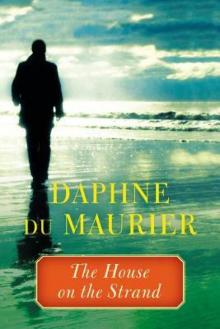 The House on the Strand
The House on the Strand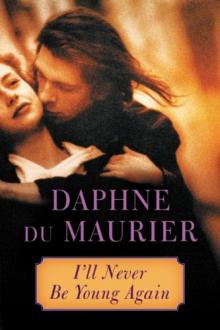 I'll Never Be Young Again
I'll Never Be Young Again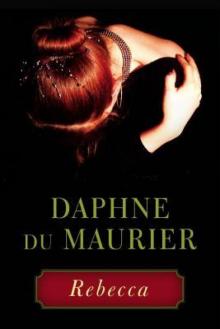 Rebecca
Rebecca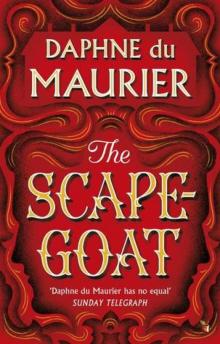 The Scapegoat
The Scapegoat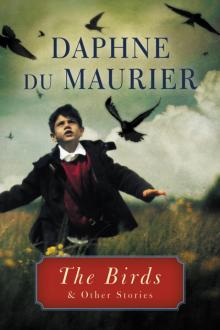 The Birds and Other Stories
The Birds and Other Stories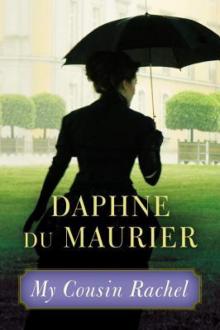 My Cousin Rachel
My Cousin Rachel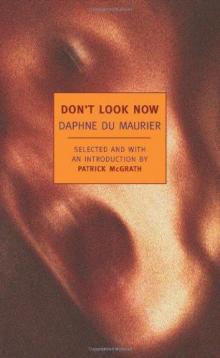 Don't Look Now
Don't Look Now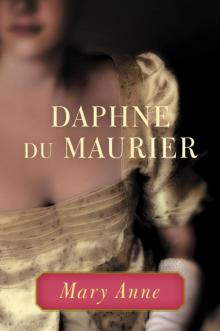 Mary Anne
Mary Anne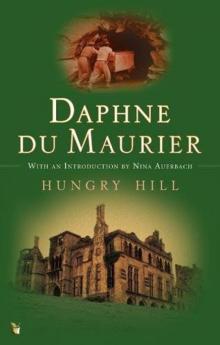 Hungry Hill
Hungry Hill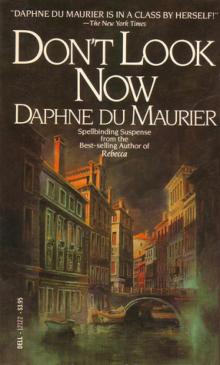 Don't Look Now and Other Stories
Don't Look Now and Other Stories The Loving Spirit
The Loving Spirit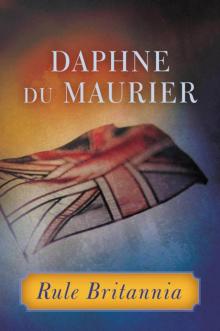 Rule Britannia
Rule Britannia The King's General
The King's General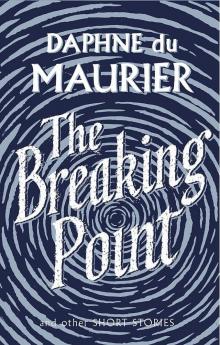 The Breaking Point: Short Stories
The Breaking Point: Short Stories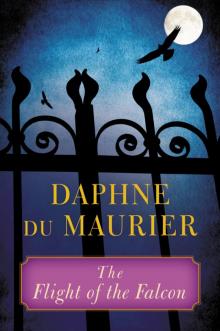 The Flight of the Falcon
The Flight of the Falcon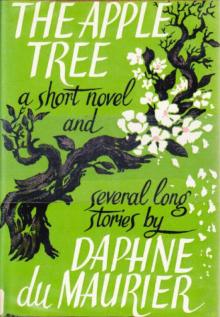 The Apple Tree: a short novel & several long stories
The Apple Tree: a short novel & several long stories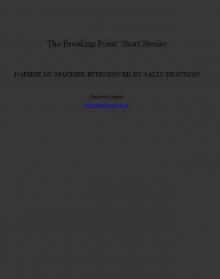 The Breaking Point
The Breaking Point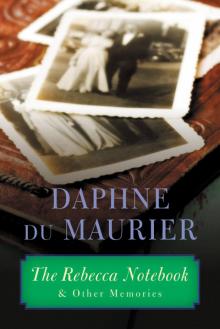 The Rebecca Notebook
The Rebecca Notebook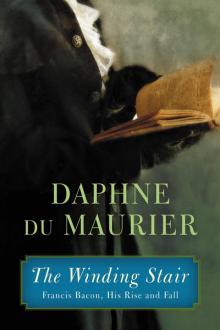 The Winding Stair: Francis Bacon, His Rise and Fall
The Winding Stair: Francis Bacon, His Rise and Fall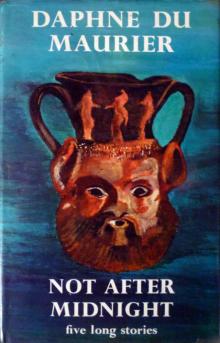 Not After Midnight & Other Stories
Not After Midnight & Other Stories The Doll
The Doll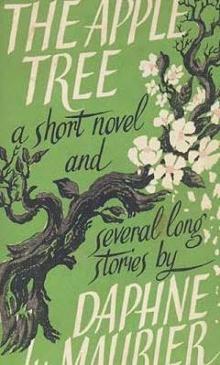 The Apple Tree
The Apple Tree